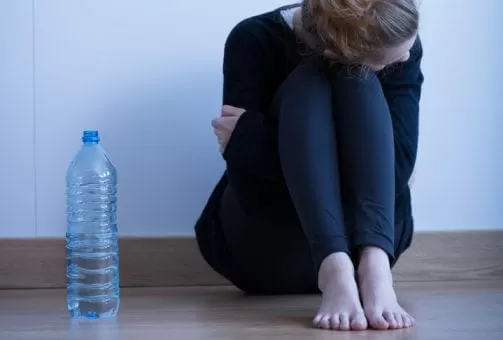The lockdown has provided a catalyst for college students to suffer from eating disorders according to Bodywhys, the Irish Eating Disorder Association.
From January to September 2020 to 2021, Bodywhys reported a 75% increase in support emails and a further 60% increase in attendees for online groups.
Adult referrals have increased significantly, most notably in the 18-24 year age group.
Ellen Jennings, Communications Officer from Bodywhys cites uncertainty during the lockdowns as a key factor in this surge in demand on their services.
Ms Jennings said: “It’s a way of finding a false sense of control when something else might be out of control in their life.”
“When we look at that coupled with the pandemic and the increase of uncertainty, the change in routine, the usual coping mechanisms that people might have used like going to meet their friends were taken away from them.”
An eating disorder is a serious mental illness characterised by food, exercise, body weight or shape becoming an unhealthy preoccupation of a person’s life.
If left untreated, this can lead to psychological and physical complications.
For many young people, the new stressful environment during lockdown such as adapting to an online learning led to the development of disordered eating habits.
In other cases, those who were already experiencing the onset of an eating disorder found the situation amplified their illness.
Experts cite the new ‘fitness’ culture created by the pandemic as a key factor in the increase, alongside a new general fear around health.
To address growing demand, the recent budget allocated funding for eating disorder treatment in the National Clinical Programme.
“It is crucial that the services get this consistent funding year on year,” said Ms Jennings.
Family and friends of the affected person can attend the Bodywhys Pillar support programme that recently moved online.
Since becoming virtual, the service has reported a large increase in attendees with a notable increase in attendees of their family support programmes.
For those concerned about a loved one developing an eating disorder, knowing the signs can ensure they get the support they need.
Eating disorders can develop gradually over time, and having a conversation with the person impacted is key to addressing the issue.
“If you feel someone you know might be struggling, talk and try to have a conversation with them.”
“Rather than focusing on the specific behaviours this person might be going through, focus on the feelings. It is more about what is going on with that person, so have a chat with them and see.”
For more information about Bodywhys.ie or contact alex@bodywhys.ie Helpline: 01 21 07 906
![]()


